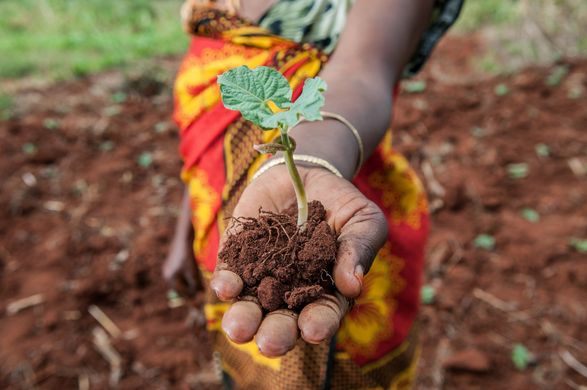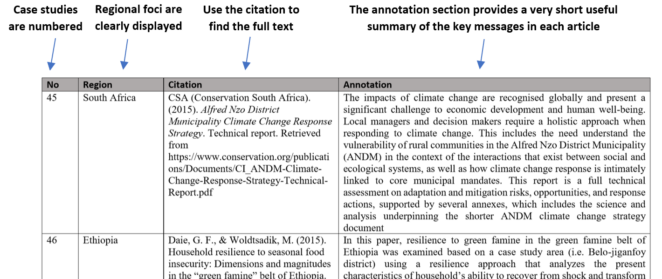An Annotated Bibliography on Ecosystem Approaches in Africa (2015 – 2018)

Introduction
This annotated bibliography*provides for different audiences such as; researchers in academic institutions, environmentally informed public, people in international development, government environmental management agencies, non-governmental organizations and other policy markers with substantial knowledge on ecosystem approach.
This work seeks to broaden the foundation and expand application of the ecosystem approach moving from research into practice. It is hoped that it will assist in filling a gap in the information available for capacity building.
*Access the full annotated bibliography from the right-hand column.
Ecosystem-based adaptation
Ecosystem-based Adaptation (EbA) appears as a possibility which brings together adaptation to climate change and management of natural areas. Ecosystem-based approaches to climate change adaptation constitute a promising option for sustainable and efficient adaptation. EbA is ‘‘the use of biodiversity and ecosystem services to help people adapt to the adverse effects of climate change.’’
Ecosystem- based adaptation uses sustainable management, conservation, and restoration of ecosystemsto provide services that enable people to adapt to the impacts of climate variability or change. The approach contributes to reducing vulnerability and increasing resilience to both climate and non-climate risksand provides multiple benefits to society and the environment.
Ecosystems and their fundamental role in protecting the environment and populations was the starting point for seeking approaches based on local ecosystems in order to generate mechanisms for adaptation to climate change. Application of the ecosystem approach will help attain the objectives of the Convention for Biological Diversity.
How to use the annotated bibliography
Annotated bibliographies provide a short summary of multiple case studies and articles in an easily accessible way. They are a valuable resource as they gather together huge amounts of literature, in this case focused on ecosystem-based adaptation in Africa, so provide a fairly comprehensive overview of recent work in the field. This document is organised by year, with research subsequently ordered alphabetically by author name.
Please see figure 1 below for a summary of what to expect from the structure of the annotated bibliography and how to use it.

Lessons Learnt
- Global assessments suggest that the ecosystem approach is not being applied systematicallyto reduce the rate of biodiversity loss, but there are many examples of successful application at the regional, national and local scaleswhich should be widely promoted and communicated.
- Most of these examples can be considered as positive outcomes for both biodiversity and human well-being.
- There is experience with application at the local level, but the ecosystem approach needs to be applied much more broadly across all levels, with active participation of all relevant sectors and stakeholders.
- The need now is to enhance access and awareness with the transmission of straight forward messages using practical tools.
- The full application of the approach in all its ecological, social, economic, cultural and political dimensions remains a formidable task, particularly at the larger scale.
- There is a clear need to communicate and illustrate it more clearly in order to expedite broader application.
- There is a need for promoters and leaders for the application of the ecosystem approach that can promote wider application through demonstration of the benefits of doing so amongst their peers and at their level of operation.
Suggested citation
IESS, 2018. An Annotated Bibliography on the Ecosystem Approach (2015-2018) College of Basic and Applied Sciences, University of Ghana, Legon, 430p.
Further reading
- Sourcebook: Valuing the Benefits, Costs and Impacts of Ecosystem-based Adaptation Measures
- Four Thematic Learning Briefs of the International EbA Community of Practice
- A guide to selecting ecosystem service models for decision-making Lessons from Sub-Saharan Africa
- EbA-driven Agriculture in Africa – a comprehensive framework to upscale and outscale food security in the continent
- Ecosystem based Adaptation: An integrated response to climate change in the Indian Himalayan Region
(0) Comments
There is no content